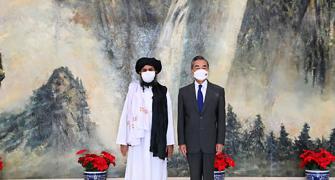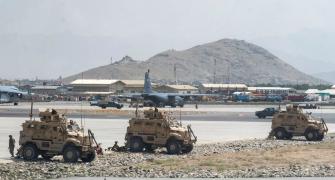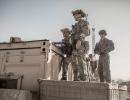China has told the United States that the Afghanistan situation has undergone fundamental changes and it is necessary for 'all parties' to make contact with the Taliban and 'guide it actively', reiterating that America's troop withdrawal may provide an opportunity for the resurgence of terrorist groups.

Chinese Foreign Minister Wang Yi, during his telephonic conversation with US Secretary of State Antony Blinken on Sunday, discussed the deteriorating situation in Afghanistan amidst chaotic airlifts of Afghan civilians and diplomats by the US and North Atlantic Treaty Organisation countries before the August 31 deadline.
Wang and Blinken also discussed bilateral ties which were riddled with tensions over a host of issues.
The Chinese Foreign Minister said the situation in Afghanistan has undergone fundamental changes and it is necessary for 'all parties' to make contact with the Taliban and 'guide it actively', state-run Xinhua news agency reported.
The US, in particular, needs to work with the international community to provide Afghanistan with urgently-needed economic, livelihood and humanitarian assistance, help the new Afghan political structure maintain normal operation of government institutions, maintain social security and stability, curb currency depreciation and inflation and embark on the journey of peaceful reconstruction at an early date, Wang said.
Facts have proved again that the Afghanistan war never achieved the goal of eliminating terrorist forces in Afghanistan and the hasty withdrawal of the US and NATO troops is likely to offer an opportunity to various terrorist groups in Afghanistan to regroup, Wang told Blinken.
Wang urged the US to take concrete actions to help Afghanistan combat terrorism and violence on the premise of respecting its sovereignty and independence, instead of practicing double standards or fighting terrorism selectively.
On China-US relations, the Chinese foreign minister said that dialogue is better than confrontation and cooperation is better than conflict, and that the Chinese side will consider how to engage with Washington based on its attitude towards Beijing.
If the US side also hopes to bring bilateral relations back on the right track, it should stop blindly smearing and attacking China, and stop undermining China's sovereignty, security and development interests, Wang added.
Their conversation followed the first round of high-level military talks after US President Joe Biden came to power in January during which the two sides discussed the rapidly-evolving situation.
China, along with Russia and Pakistan, has kept its Embassy in Kabul open.
Wang Yu, the Chinese ambassador in Afghanistan, held first diplomatic talks with the Taliban officials recently.
China, which is closely coordinating with its 'all-weather ally' Pakistan to evolve its Afghanistan policy following the withdrawal of troops by the US, has held two rounds of talks with the Taliban.
Last month, Beijing hosted a Taliban delegation headed by its senior leader Mullah Abdul Ghani Baradar.
In his talks with Baradar, Foreign Minister Wang asked the Taliban to break away from the terrorist groups and not allow the Uygur militant group from Xinjiang -- the East Turkistan Islamic Movement (ETIM) -- to operate from Afghanistan.
After the Taliban returned to power, China has asked it to build an open and inclusive political structure through consultation, implement moderate and prudent domestic and foreign policies, thoroughly dissociate from all terrorist groups and maintain friendly relations with the rest of the world, especially neighbouring countries.
The Taliban seized power in Afghanistan on August 15, two weeks before the US was set to complete its troop withdrawal after a costly two-decade war.
This forced Afghan President Ashraf Ghani to flee the country to the UAE.
The Taliban insurgents have stormed across Afghanistan, capturing all major cities in a matter of days, as Afghan security forces trained and equipped by the US and its allies melted away.
Thousands of Afghan nationals and foreigners are fleeing the country to escape the new Taliban regime and to seek asylum in different nations, including the US and many European nations, resulting in total chaos at Kabul airport and deaths.









